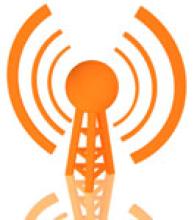What Constitutes Socialism?
While I was researching recent developments in the BVU OptiNet, I stumbled across a hilarious comment to a news post. I have tried to track down the original source but have not been able to find anything. I am going to reprint it here, assuming the author would appreciate it...
This was written by someone apparently fed up with all the claims about what is socialism and what isn't. I think it simply serves as a good reminder of the role government plays in our lives -- often transparently.
This morning I was awoken by my alarm clock powered by socialist electricity generated by the public power monopoly regulated by the US Department of Energy. I then took a shower in the socialist clean water provided by the municipal water utility. After that, I turned on the socialist radio to one of the FCC regulated channels to hear what the socialist National Weather Service of the National Oceanographic and Atmospheric Administration determined the weather was going to be like using socialist satellites designed, built, and launched by the National Aeronautics and Space Administration. I watched this while eating my breakfast of socialist US Department of Agriculture inspected food and taking the socialist drugs which have been determined as safe by the Food and Drug Administration. At the appropriate time, as kept accurate by the socialist National Institute of Standards and Technology and the US Naval Observatory, I get into my socialist National Highway Traffic Safety Administration approved automobile and set out to work on the socialist roads build by the socialist local, state, and federal departments of transportation, possibly stopping to purchase additional fuel of a quality level determined by the socialist Environmental Protection Agency, using socialist legal tender issued by the Federal Reserve Bank. On the way out the door, I deposit any mail I have to be sent out via the socialist US Postal Service and drop the kids off at the socialist public school.



